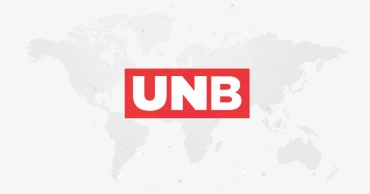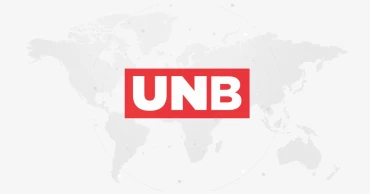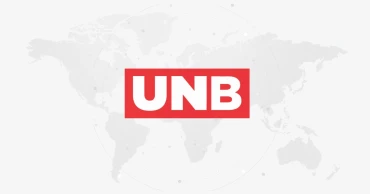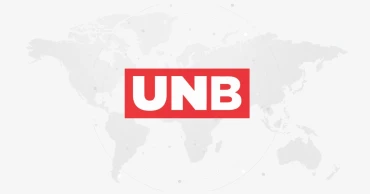state of emergency
Israel declares state of emergency as wildfire rages near Jerusalem
Israel has declared a national emergency and deployed military forces to combat a massive wildfire spreading near Jerusalem. The blaze has forced the closure of the main highway linking the capital to Tel Aviv, the country’s economic and tech hub.
Authorities have canceled all Independence Day events, scheduled for Thursday, to ensure emergency services remain fully available. Defense Minister Israel Katz described the fire, which is concentrated in villages southwest of Jerusalem, as a “national emergency.” A spokesperson for Prime Minister Benjamin Netanyahu confirmed a general mobilization was underway.
Carolina wildfires continue to rage
Eyal Caspi, head of the Israel National Fire and Rescue Authority, told reporters it would take at least 24 hours to bring the fire under control. The wildfire spread rapidly due to high temperatures, strong winds, and abnormally dry vegetation following a mild winter.
Four communities — Nahshon, Ezor Latrun, Neve Shalom, and Mesilat Zion — along the affected highway are being evacuated. The national ambulance service, Magen David Adom, reported treating 22 people for injuries, although no deaths have been reported.
In a bid for international support, Foreign Minister Gideon Sa’ar has reached out to his counterparts in Cyprus, Croatia, Italy, and Greece to request firefighting aircraft. Israeli military rescue teams and air force reconnaissance planes are already aiding in the firefighting efforts.
Israel committing ‘Livestreamed Genocide’ in Gaza: Amnesty
Officials have also urged the public to refrain from visiting cemeteries on Wednesday, a Memorial Day tradition, due to the ongoing emergency.
Source: With input from agency
10 months ago
Peru extends state of emergency due to COVID-19 amid fourth wave
Peru extended a state of emergency on Thursday over the COVID-19 pandemic amid a fourth wave.
The decision extends emergency conditions for another 28 days as of Aug. 1.
"The national state of emergency will be extended due to the serious circumstances that affect the lives and health of people as a result of COVID-19," the official newspaper "El Peruano" said.
Peru remains on alert amid the new wave, seeing an average of 11,000 new cases a day last week, official figures showed.
Read: Peru faces "community transmission" of monkeypox: top health official
The Health Ministry has issued 80,336,753 vaccines, of which 68.6 percent correspond to a third dose and 17.4 percent to a fourth.
According to the World Health Organization, Peru saw 14,186 new infections and 41 deaths from the disease on Thursday, for a total of 3,873,702 cases and 214,120 deaths.
3 years ago
State of emergency declared in Sri Lanka
Sri Lanka's Prime Minister Ranil Wickremesinghe declared a state of emergency in the South Asian country, the Prime Minister's Office said on Wednesday.
The police have imposed a curfew in the Western Province, including the capital Colombo, the Office said after President Gotabaya Rajapaksa has left the South Asian country amid an economic crisis.
Earlier in the day, the office confirmed that President Rajapaksa has left the country for the Maldives.
Rajapaksa had informed the speaker of Sri Lankan parliament that he would resign from the presidency on Wednesday. Sri Lanka this year has been suffering a severe economic crisis which has led to protests.
Sri Lanka's speaker of parliament Mahinda Yapa Abeywardena said political party leaders have decided to elect a new president on July 20 through a vote in parliament.
Read: Sri Lanka's new president to be elected on July 20: speaker
3 years ago
Sudan's top general lifts state of emergency from coup
Sudan’s leading general lifted a state of emergency Sunday that was imposed in the country following the October coup he led.
The decision by Gen. Abdel-Fattah Burhan, head of Sudan’s ruling sovereign council, came hours after the Security and Defense Council, Sudan’s highest body that decides on security matters, recommended an end to the state of emergency and the release of all detainees.
Also read: Aid group says tribal violence kills 8 in Sudan’s Darfur
The recommendations are meant to facilitate dialogue between the military and the pro-democracy movement, the defense minister, Maj. Gen. Yassin Ibrahim Yassin, said in a video statement. They come as the country faces protests against military rule and an unknown number of activists and former officials remain in detention.
Earlier Sunday, the U.N. envoy for Sudan, Volker Perthes, called for the country’s leaders to lift the state of emergency. He decried the killing of two people in a crackdown on pro-democracy protesters who once again took to the streets of the capital to denounce the Oct. 25 coup.
“Once again: It is time for the violence to stop,” said Perthes on Twitter.
Hundreds of people marched Saturday in Khartoum, where security forces violently dispersed the crowds and chased them in the streets, according to activists. The two were killed during protests in Khartoum’s Kalakla neighborhood. One was shot by security forces and the other suffocated after inhaling tear gas, said the Sudan Doctors Committee, which is part of the pro-democracy movement.
Sudan has been plunged into turmoil since the military takeover upended its short-lived transition to democracy after three decades of repressive rule by former strongman Omar al-Bashir. Al-Bashir and his Islamist-backed government were removed by the military in a popular uprising in April 2019.
Saturday’s protests were part of relentless demonstrations in the past seven months calling for the military to hand over power to civilians. At least 98 people have been killed and over 4,300 wounded in the government crackdown on anti-coup protests since October, according to the medical group. Hundreds of activists and officials in the disposed government were also detained following the coup, many were later released under pressure from the U.N. and other western governments.
The protesters demand the removal of the military from power. The generals, however, have said they will only hand over power to an elected administration. They say elections will take place in July 2023 as planned in a constitutional document governing the transition period.
Also read:UN envoy: Sudan could face economic and security collapse
The U.N., the African Union and the eight-nation east African regional group called the Intergovernmental Authority in Development have been leading concerted efforts to bridge the gap between the two sides and find a way out of the impasse.
Meanwhile, the trial of four activists accused of killing a senior police officer during a protest earlier this year began Sunday amid tight security outside the Judicial and Legal Science Institute in Khartoum. Dozens of protesters gathered in the area in a show of support for the defendants.
The four were detained in raids after police Col. Ali Hamad was stabbed to death as security forces dispersed protesters on Jan. 13. Their defense lawyers deny the allegations.
The court’s judges in Sunday’s proceedings ordered the defendants be medically examined after their lawyers claimed they were tortured and mistreated in police detention. The trial resumes June 12.
3 years ago
Protests over shortages roil Sri Lanka despite curfew
Opposition lawmakers and people angered by the government's handling of Sri Lanka's worst economic crisis on Sunday marched to denounce the president's move to impose a nationwide curfew and state of emergency, as protests over food and fuel shortages swelled.
Internet users were unable to access Facebook, Twitter, YouTube, WhatsApp and other social media platforms for nearly 15 hours on Sunday after authorities blocked access.
Apparently due to the growing criticism, access to social media was later restored. The platforms have been used to organize protests calling for President Gotabaya Rajapaksa to resign, saying he is responsible for the country’s deepening economic woes.
Also read: Sri Lanka blocks social media amid calls for more protests
Sri Lanka is under a nationwide curfew until Monday morning after Rajapaksa assumed emergency powers at midnight Friday. More protests were taking place throughout the country on Sunday as anger over people waiting in long lines for essential foods, fuel and hourslong rotating power cuts boiled over.
Facebook posts showed crowds of young people shouting anti-government slogans and singing songs.
The emergency declaration by Rajapaksa gives him wide powers to preserve public order, suppress mutiny, riot or civil disturbances or for the maintenance of essential supplies. Under the decree, the president can authorize detentions, seizure of property and search of premises. He can also change or suspend any law except the constitution.
In the capital, the lawmakers marched toward Colombo's main square, shouting slogans and carrying placards that read “Stop Suppression” and “Gota go home.” Gota is a shortened version of the president's first name.
Armed soldiers and police officers set up barricades on the road leading to the square, which was built to commemorate the country's independence from Britain in 1948.
Also read: Sri Lanka imposes 36-hour curfew under state of emergency
“This is unconstitutional," opposition leader Sajith Premadasa told troops who prevented the lawmakers from walking to the square. "You are violating the law. Please think of the people who are suffering. Why are you protecting a government like this?”
Another lawmaker, Nalin Bandara, said: “How long can they rule under emergency? The first instance when the curfew is lifted, people are going to be back on the streets."
Sri Lanka faces huge debt obligations and dwindling foreign reserves, and its struggle to pay for imports has caused a lack of basic supplies. People wait in long lines for gas, and power is cut for several hours daily because there’s not enough fuel to operate power plants and dry weather has sapped hydropower capacity.
The island nation’s economic woes are blamed on a failure of successive governments to diversify exports, instead relying on traditional cash sources like tea, garments and tourism, and on a culture of consuming imported goods.
The COVID-19 pandemic dealt a heavy blow to the economy with the government estimating a loss of $14 billion in the last two years. Protesters also point to mismanagement — Sri Lanka has immense foreign debt after borrowing heavily on projects that don’t earn money. Its foreign debt repayment obligations are around $7 billion for this year alone.
The crisis has hit people from all walks of life. Middle class professionals and business people who would normally not take part in street protests have been holding nightly rallies with candles and placards in many parts of the country.
3 years ago
State of emergency in British Columbia; more deaths expected
The Canadian Pacific coast province of British Columbia declared a state of emergency Wednesday following floods and mudslides caused by extremely heavy rainfall, and officials said they expected to find more dead.
Every major route between the Lower Mainland of British Columbia, where Canada’s third largest city of Vancouver is, and the interior of the province has been cut by washouts, flooding or landslides following record-breaking rain across southern British Columbia between Saturday and Monday. The body of a woman was recovered from one of the mudslides late Monday.
“Torrential rains have led to terrible flooding that has disrupted the lives and taken lives of people across B.C. I want people to know that the federal government has been engaging with the local authorities,” Canadian Prime Minister Justin Trudeau said in Washington. “We’re sending resources like the Canadian Armed Forces to support people but also we’ll be there for the cleanup and the rebuilding after impacts of these extreme weather events.”
The federal government said it was sending the air force to assist with evacuations and to support supply lines.
Military helicopters already helped evacuate about 300 people from one highway where people were trapped in their cars Sunday night following a mudslide,
“We expect to confirm even more fatalities in the coming days,” British Columbia Premier John Horgan said.
Horgan called it a once in a 500 years event. He said the state of emergency will include travel restrictions so the transport of essential goods medical and emergency services will reach the communities that need them. He asked people not to hoard goods.
“These are very challenging times. I’ve been at this dais for two years now talking about challenging times we have faced — unprecedented challenges with public health, wildfires, heat domes and now debilitating floods that we have never seen before,” Horgan said.
Horgan said over the past six months there have been drought conditions in Merritt, where the river was at its lowest point in living memory and where people had to be evacuated because of wildfires in temperatures that were unprecedented. And now, he said, much of the community is under water.
Also read: Heavy rains in southern India kill 14 people, flood Chennai
“We need to start preparing for a future that includes more events like this,” Horgan said.
The weather events are all connected and can be attributed to climate change, said John Clague, a professor in the Earth Sciences Department at Simon Fraser University.
“Scientists are now saying these particular events, they’re becoming more frequent, exacerbated or ramped up by climate change,” he said.
The record temperatures in the summer set the stage for the wildfires, said Clague. The fires burned the ground in a way that prevents water from seeping into the soil. He said that resulted in the water from the torrential rains pouring more quickly into steams and rivers, causing floods.
The total number of people and vehicles unaccounted for had not yet been confirmed near the town of Lillooet. Investigators had received reports of two other people who were missing but added that other motorists might have been buried in a slide on Highway 99. ‘’
Chelsey Hughes said she was thankful to have survived the slide that slammed into her car before it landed in a swamp as she was driving along the highway. Hughes was heading home Sunday when she saw a tree starting to fall as a slide shoved her car about a mile off the road and down an embankment.
Read: Red alert issued as Teesta flows 60 cm above danger level
“Then the car stopped moving and I was just shocked. I was afraid to move because I didn’t know if I was injured,” she said after spending about five hours shivering on top of her car without a jacket next to another vehicle with four university students sharing one jacket atop their vehicle.
When Hughes finally connected with a 911 dispatcher, he helped her monitor one student’s condition after he had an asthma attack before they finally saw the lights of rescuers.
They spent an hour hiking out, she said of the traumatic events that unfolded Sunday night before nine of them were taken to hospital. She said she has been thinking about the family of a woman who died.
“I think that could have been any one of us, and there’s nothing that you can do. When we got hit by that landslide, we just had to surrender,” she said.
Agriculture Minister Lana Popham said thousands of animals had died and the province was rushing to get veterinarians to other animals that are in danger.
``I can also tell you that many farmers attempted to move animals and then had to walk away because the roads were disappearing beneath them,″ she said.
A trade expert said the loss of major transportation routes will hurt the movement of goods both in and out Canada’s largest port in Vancouver.
“Vancouver really has an outsized role to play in our Pacific trade,” said Werner Antweiler, an associate professor at the UBC Sauder School of Business. “Commodities will be impacted in a much more significant way because it’s coming by rail or coming by big trucks.”
4 years ago
S'pore, M'sia reach in principle agreement on travel protocol
Singapore has reached with Malaysia in principle agreement to have protocols for travel in circumstances such as family bereavements, according to the republic’s Foreign Affairs Minister Dr Vivian Balakrishnan.
5 years ago
UN Security Council: Refer Myanmar to ICC, impose global arms embargo
The United Nations Security Council should impose a global arms embargo on Myanmar and refer the situation in the country to the International Criminal Court (ICC), said Fortify Rights on Tuesday.
5 years ago
Japan ruling lawmaker quits over hostess bar visit amid virus emergency
A senior member of Japan's ruling coalition offered to quit parliament Monday after angering the public by visiting a Tokyo hostess bar despite government calls to avoid unnecessary outings under a state of emergency to rein in the spread of the coronavirus.
5 years ago


.jpg)


.jpg)








